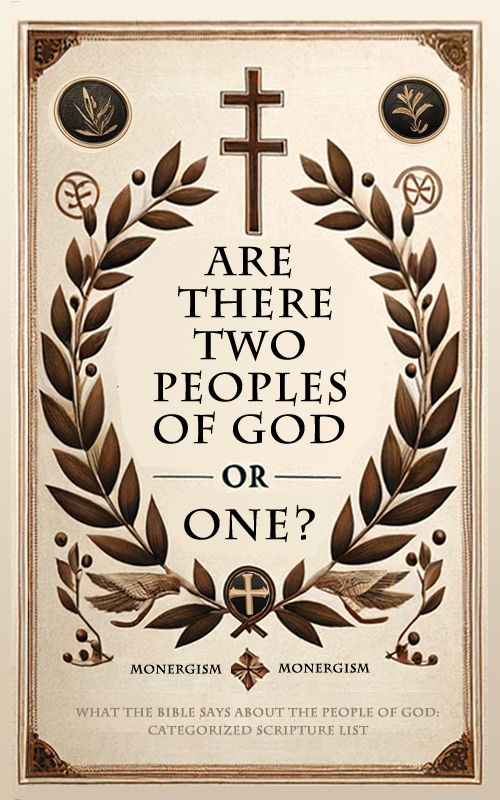 by Monergism
by Monergism
in ePub, mobi, and .pdf formats
What the Bible Says About the People of God: Categorized Scripture List
"Are There Two Peoples of God or One?" explores one of the most significant theological debates in Christian history. This comprehensive study examines the biblical foundation for understanding the unity of God's people, tracing the continuity and expansion of His covenant community from the Old Testament to the New Testament.
With a robust examination of Scripture, the book argues that there is indeed one people of God, differentiated by roles in redemptive history. The Jews hold a place of preeminence as the firstborn, a title shared by Jesus Christ, while the New Testament Church represents the continuation and fulfillment of God's promises to Israel. Drawing on the writings of the Apostle Paul, the book explains how Gentiles, once alienated from the commonwealth of Israel, are now grafted into the same tree, sharing in the rich blessings of the covenant.
The book addresses key theological perspectives, contrasting covenant theology with dispensationalism. It rejects the notion of a literal millennium with a rebuilt temple and re-established Mosaic Law, instead interpreting apocalyptic literature through a Christocentric lens. The future hope is not in returning to old sacrifices and laws but in the coming of Christ, who will establish a new heaven and new earth where He reigns supreme.
"Are There Two Peoples of God or One?" also explores the prophetic and typological fulfillment in Christ, emphasizing that the Old Testament prophecies point to Him as the true Israel and the ultimate Seed of Abraham. This work is essential for anyone seeking a deeper understanding of the unity of God's people and the unfolding of His redemptive plan throughout history.
-----
Table of Contents
Foreword
What Dispensationalists Say About the People of God
What the Bible Says About the People of God: Categorized Scripture List
The People of God
The Fulfillment of Prophecy
The Faith of Old Testament believers
The Kingdom of God
The Millennium
